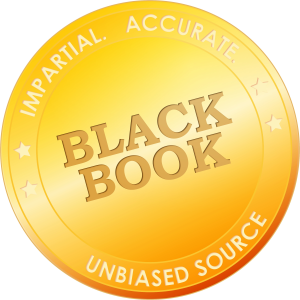Black Book Research Releases 2014 Student Loan Data: Fewer Major Companies Hiring High Debt College Grads, More Grads Expect Government Loan Bailout to Erase Debts

Clearwater, Flporida , June 12, 2014 (Newswire.com) - According to Black Book’s Q1 2014 poll of 18,939 college grads under 28 years old, the average outstanding student loan balance has increased to between $25,000 and $30,000. In contrast, 87% of working young professionals with high balance student loans (over $100,000) report being declined mortgages, credit cards and auto loans, as it becomes harder to borrow for those lines of credit.
69% of working college grads since 2008 state they are underemployed, and 66% are believe they are earning half or less of what they had anticipated making at this point in their early career. 94% confirm their student loan payments are “not manageable” at their current rate of pay.
The personal loan debt of a four year college education is also foiling many new grads from getting hired.
Black Book’s 2014 higher education satisfaction surveys of employers and grads reveal that 6 7% of hiring companies have “little-to-no interest” in candidates with high student debt over $50,000, regardless of their major or the prestige of the college attended.
89% of college recruiters confirm a hiring preference of state or public university graduates, both at the bachelors and advanced degree levels because the graduates are less distracted as new hires by the issue caused by high student loan balances owed, according to the the Black Book survey.
50% of the 480 polled company recruiters are curtailing 2014 fall semester on-campus enlistment efforts to small and medium private liberal arts colleges where candidates with the highest debt and the least demanded bachelor degrees are overwhelmingly sourced (93%).
94% of hiring companies identify on of their highest risks for making a “bad hire” offer (new employees that leave their jobs within six months of hire) to US companies are (1) new grads with over $80K in student debt (2) that went to a liberal arts college with less than 5,000 students, and (3) received a degree that lacked competitive business, engineering, health care and/or technology courses.
A main reason is recruiters are finding new grads with more than $50K in loans are eight times as likely to jump jobs to a higher paying position within their first six months of work. Those with extraordinary amounts of student debt for bachelors’ and masters’ degrees also spend 10+ hours per week seeking a new job immediately after being hired, as compared to 1 hour or less per week for their peers with low or no student debt. This continues at the same rate for the first eight years after graduation, making intermediate level candidates with high student loan debts as risky a hire as new grads.
Nine out of ten hiring employers confirm they are pulling student applicant credit histories not to assess their credit card or mortgage payment promptness, but to get an idea of their total student loan debt.
None of the 2,490 recruiters participating in the survey stated they reveal the actual reason to the turned down candidate is the high amount of loan debt that person has amassed to obtain a degree.
“American companies with record productivity are unlikely to risk the expense of orienting, training, relocation, salary and benefits of a new grad with exceptionally high student loans and the track record of job hopping,” said Douglas Brown, Managing Partner of Black Book. 91% of recruiters expect the trend of avoiding candidates with high student loans to continue through 2016 or longer.
This for-profit, corporate implication is also echoed by 71% of not-for-profit firms and public sector recruiters.
“Poor decision making in a student’s personal life is reflected in the equation that the cost to earn one’s degree should not be more than that student can hope to earn over two years of full-time employment,” said Brown interpreting 84% of recruiters’ survey responses. That is, if your aspiration through college was to get a job earning $40,000 a year starting pay, you shouldn’t have accumulated more than $80,000 in debt. It is inferred that if the candidate has excessive loan debt, she inappropriately selected to attend a high cost college, and/or took an extended time to achieve the degree, thus matters of discernment will discourage employers from having faith in the candidate’s long term personal contributions to the company.
“Right or wrong, in the current state of economic recovery, and it’s realistic for employers to protect their productivity levels with stable, highly functional, focused and loyal staff,” said Brown.
Black Book asked 2005-2014 grads with over $100K in college loans making less than $50,000 per year, how they felt about their ability to pay off such disproportionate-to-income student loan amounts, 97% said they believe the federal government will completely relieve them of their need to pay off their loans in the near future and their loan amount is or will not be a concern to them very soon.
“If extrapolating from recent studies that happier employees are more productive, and those with higher debt are less happy, then it leaves employers and their recruiters to conclude that hiring grads with loads of loans hanging over their heads will ultimately make them less productive and a much bigger turnover risk to higher paying employers,” said Brown.
Adding insult to injury, college grads with loan debt over one times their annual first year salary expectations are also more ten times more likely to dislike their current job.
Last month’s crop of new college grads with high student loan debt are surely at a disadvantage in the employment chances.
“I expect we will soon see allegations of discriminatory hiring practices over a brand, new handicap… being deemed unemployable for taking out too much money to buy a college degree,” said Brown.
